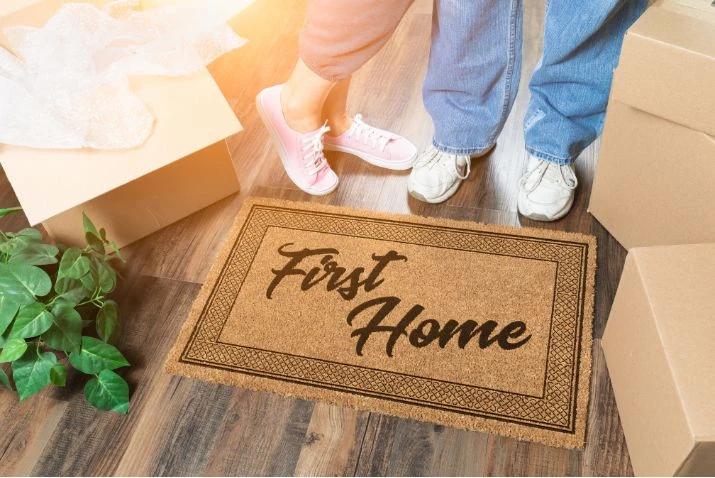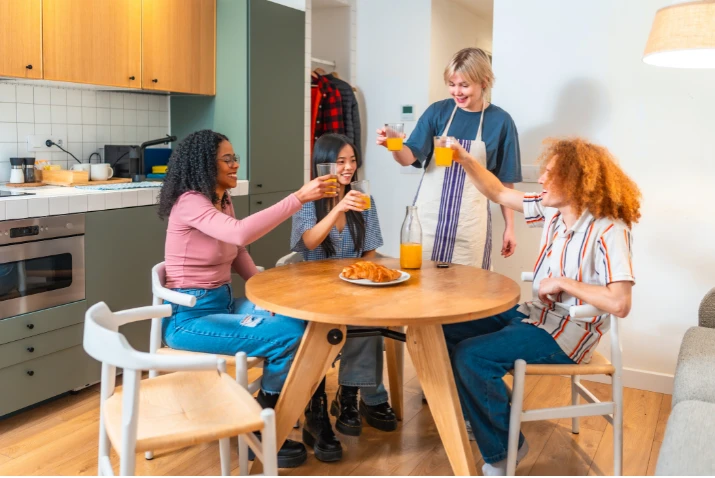Things for first-time buyers to be aware of
- It can take 6-12 months to find the right property, so take your time and do plenty of research – this is one of the most expensive purchases you’ll ever make!
- The way you buy today is very different even from a few years ago, so understand the buying process before you look for a property by reading the Government’s ‘How to buy a home’ guide (England & Wales).
- Don’t believe what you hear in the media about needing a large deposit. Plenty of lenders will accept a 5% deposit, and Skipton Building Society and Barclays both have a mortgage product specifically for first-time buyers (FTBs) that will enable you to borrow 100%.

Before you start looking for a property
- Speak to a mortgage broker like our sister company, Mortgage Scout, to find out exactly how much you might be able to borrow. You may be pleasantly surprised, and agents will be reassured to know you have already taken mortgage advice.
- Make sure you know exactly what information and documents you’ll need to bring to your mortgage appointment, such as proof of ID and address, proof of income and details of any ongoing financial commitments or debt.
- Check out the various schemes that can help you buy your first home, such as the First Homes scheme or through shared ownership, which our sister company SOWN can advise on.
- Be clear on your ‘needs’ – the things you simply can’t do without, e.g. a parking space - and ‘wants’, which are things you’d ideally like but are prepared to compromise on, such as a second bedroom.

Looking for a property
- When you’re searching online, look for listings that give ‘material information’ about the property – that includes council tax, parking, rights of way, restrictive covenants and flood risk. Find good agents that provide this information up front.
- Visit several properties that are within your budget and don’t rule out anything before seeing it in person. It’s important to make sure you know what kind of properties are affordable for you and it will help you narrow down what you really want – not just what you think you might want.
- For properties you’re interested in, do drive-bys and/or walk-bys at different times of day to check things like how busy or noisy the area is and whether parking gets tricky, particularly in the evenings.

Before making an offer
- Check the property’s price history on sites like Rightmove – it’s free and you can check to see whether it has kept up with inflation over the years. Ideally, you want to buy something that has grown in value by more than the rate of inflation in the past, as that’s a reasonable indicator it will continue to do so.
- If you’re considering buying a leasehold flat, make sure you know what the associated maintenance/service charges are –particularly as some leasehold costs have risen due to building safety requirements.
- With any leasehold property find out whether there are any restrictive covenants or clauses – e.g. some leases don’t allow you to keep a pet, others forbid sub-letting.
- Use the EPC rating to check how much your utility bills are likely to be.
- Ask if there are any gas or electrical safety certificates, or other warranties, and check how old the boiler is. The last thing you want is to move into a home and suddenly be faced with a bill for thousands of pounds for maintenance and repairs.
- If you’re currently renting, check your notice period and make sure you understand where you might incur additional costs if your tenancy and new purchase overlap.
- Speak to your mortgage broker and get an ‘agreement in principle’ to demonstrate to the agent and seller that the property is affordable.
- Make a fair offer and justify it. As a first-time without a chain, you are in a good position, so if the property has been on the market for a while and you’re happy to move quickly, it might be reasonable to come in at below the asking price. And if the seller hasn’t yet found a property to buy, they may accept a lower offer if you’re prepared to wait and move to their timescale - having a reliable buyer in place may give them extra bargaining power themselves.
- Choose a legal company – whether that’s a solicitor or a licensed conveyancer - that has experience in your type of purchase transaction.
- Instruct your legal company so you’re ‘ready to go’. If they can perform all the necessary ID and money laundering checks in advance, it means they’ll be able to move ahead as soon as your offer is accepted.

Once your offer has been accepted and you’re ‘sale agreed’
- Ask the agent to confirm in writing that the property is now off the market and no further viewings will be conducted. This should be the case, but sometimes vendors want to keep taking viewings as back-up in case your offer falls through.
- Lodge search funds with your legal rep and ask for the searches to be carried out within the first week.
- A mortgage valuation is not a survey and is carried out on behalf of the lender, not you, so make sure you instruct your own survey. Unless it’s a new build, you should have a Home Condition Survey, and if it’s more than 50 years old and/or looks in poor condition, it may be worth having a full Building Survey.
- If issues are found in your survey report and they’re going to be expensive to fix, speak to the agent, as you may be able to renegotiate the purchase price. Any buyer’s survey is likely to find the same problems, so the seller should certainly consider a reasonable proposal.
- As well as signing your contract, your deposit funds will need to be lodged with your solicitor before exchange can take place, so check whether there are any restrictions on how much you can move at one time and whether notice has to be given, e.g. if the money is in a high-interest savings account.
- The completion date will be agreed before exchange, so book your removals as soon as you have this. Always use a firm that is a member of the British Association of Removers.
- Your solicitor will liaise with your broker and lender, but it’s important to check that the mortgage funds are ‘drawn down’ 24-48 hours before completion day. Lenders often need 5 days to order the funds and you will have to pay interest on your borrowing from the moment they are released.
- As soon as the transaction completes, which is usually by 1pm, the property is yours and you can collect the keys from the agent.
- Finally, as with any financial transaction, file all your physical and digital paperwork carefully, ready for when you come to sell in the future.
If you’d like to discuss any aspect of buying your first home and find out what schemes and opportunities are currently available in your area, we’re always here to help. Just contact your local branch and one of the sales team will be very happy to have a chat.








